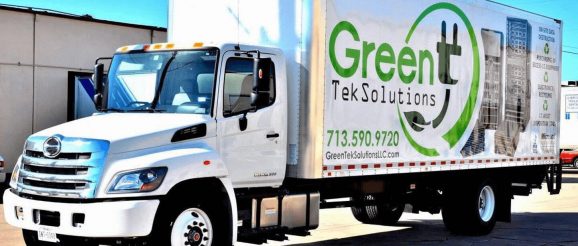Insight: Innovation economy taking shape in Houston

Work converting methane into carbon nanotubes earned the university a $3.3 million grant from the U.S. Department of Energy. Although difficult to make in large quantities, the carbon nanotubes have been shown to be stronger than Kevlar, the material used in bullet proof vests, and more conductive than copper. They have the ability to turn heat into electricity. Researchers say the technology has the potential to help decarbonize the notoriously emissions-laden mining and heavy-metals industry.
More recently, Rice scientists’ work in converting electronic waste and even food waste into rare earth elements such as cobalt and lithium, could soon earn a $5.2 million grant through the U.S. Army Corps of Engineers.
But the advances aren’t just coming from universities.
Houston-based Renewable Storage Co. hopes to convert cavernous salt domes into giant mechanical batteries, taking electricity from the grid when demand isn’t high to inject massive volumes of compressed air into the seal-tight geographic formations. When grid conditions are tight, the salt-domes batteries will release that compressed air to power a turbine to generate electricity. Art Gelber, one of the company’s partners, said he hopes to sell the services to renewable-energy providers such as wind turbine operators so they can continue to put power on the grid even when the wind isn’t blowing.
Researcher Steven Williams, a PhD candidate, showcases the flexibility of carbon fibers, which have been sewed into an elastic fabric, inside Rice University’s Carbon Hub lab on Thursday, Aug. 12, 2021, in Houston. Researchers hope that the carbon nanotubes could eventually take the place of materials like copper and steel, the mining of which generates a massive carbon dioxide footprint.
Silicon Bayou?
Two Houston tech start-ups were selected by Google late in September to be part of their Black Founders Fund. They are Doss, which will provide a virtual one-stop shop for home buying and home services such as plumbing and insurance, and SOTAOG, which provides real-time analytics to oil-and-gas companies and heavy industries, such as those that manufacture oil and gas equipment. Both companies will get $100,00, but the companies’ founders, Bobby Bryant of Doss and Robert Estill of SOTAOG, say that more important, they’ll have access to Google engineers and the tech giant’s professional network.
A month earlier, Apple tapped another local company for its first Impact Accelerator class — a program that provides resources and mentoring to minority-owned businesses that can benefit Apple’s supply chain and help communities that are disproportionately affected by environmental hazards. The company, GreenTek Solutions, refurbishes, sells and recycles old electronics. Since its founding in 2012, it has kept more than 3,450 tons of used electronics out of landfills.
While Houston still lags (at least in perception) behind Austin and tech-darlings San Francisco and Boston, the latest developments show that dynamic might be changing.
